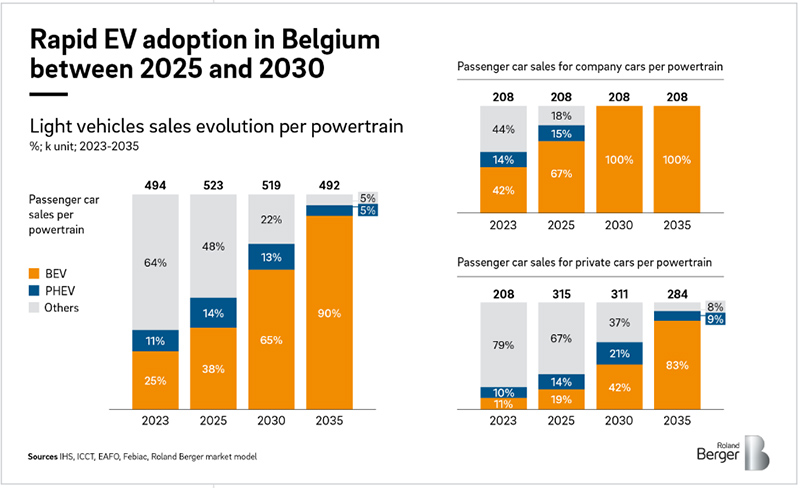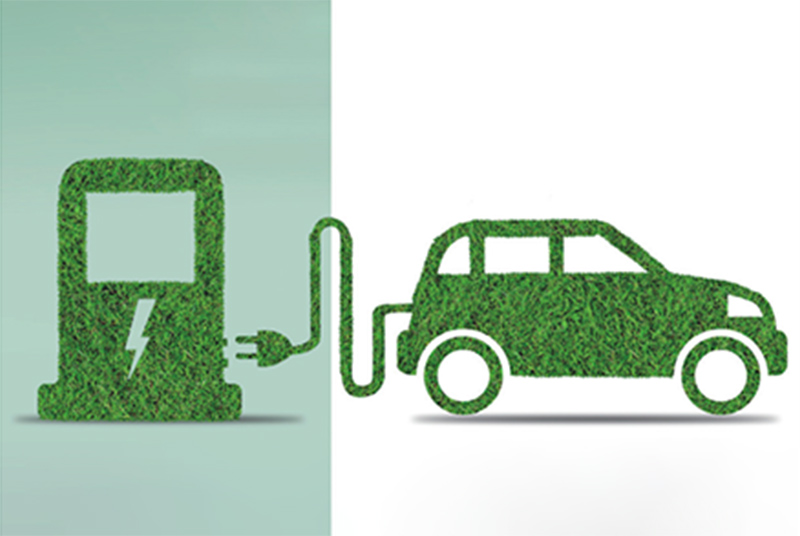Belgium has assumed the rotating presidency of the Council of the European Union since January 1, 2024. In response to the triple crisis of climate change, biodiversity loss and environmental pollution, Belgium has set green transformation as the core theme for the next six months since taking office. The Belgian government plans to focus on the development of sustainable electric and non-motorized modes of transportation to achieve green transformation, and strive to be the first to achieve carbon neutrality in the transportation sector.
Electric transportation is an important cornerstone for achieving carbon neutrality. Belgium has performed steadily in the popularization of electric vehicles, with a current penetration rate of electric vehicle sales of only 30%, but there are two specific factors that will promote the popularization and rapid development of electric vehicles. First, Belgium has an unusually large number of company cars, estimated 600,000 vehicles - about 40% of new car sales come from company leased vehicles. The Belgian government's tax breaks for polluting vehicles will be significantly reduced year by year from 2025 until they are completely abolished in 2028 to encourage more companies to switch to electric vehicles, so we expect that the proportion of electric vehicles in company fleets will exceed 65% by then. When leases expire and cars are sold as used cars, this will have a chain reaction on the private market. According to data from Traxio, the Belgian car dealers association, orders for electric vehicles have exploded recently. In 2023, electric company cars accounted for a quarter of all registered company cars, and this proportion is expected to continue to rise to 60% by 2024.

Secondly, some cities will add low-emission zones to restrict the entry of non-electric vehicles. The specific nature of these laws remains to be determined. More importantly, the charging infrastructure in Belgium is constantly improving, and consumers' awareness of environmental protection and electric vehicles is constantly improving. It is reported that the Belgian government is issuing a large-scale tender to equip regional roads with enough charging points. In addition to pioneers such as Fastned and Allego, large utility companies such as ENGIE and Luminus, and oil and gas companies such as Shell are also installing bus charging piles at workplaces, destinations and highways.
In terms of non-motorized transportation, electric bicycles may vigorously promote the green transformation of the transportation sector. On the one hand, electric bicycles are a simple, cheap and environmentally friendly means of transportation, and they are very popular in Belgium. According to the EU official website, Belgium ranks first among EU countries in terms of electric bicycle sales per thousand residents, tied with the Netherlands. On the other hand, the energy crisis has greatly increased the cost of using cars for Belgians. Data from the Belgian Ministry of Transport also proves this: from 2019 to 2022, the use of electric bicycles increased by 56%.
At the same time, in response to this trend, the two shared travel companies in Belgium, Tier Mobility and Dott, reached a preliminary merger agreement. The merged new company will continue to operate under the Tier and Dott brands, and jointly use their respective expertise to provide safe, reliable, and sustainable shared transportation services throughout Europe to reduce traffic congestion and environmental pollution in urban areas.
We wish Belgium's plan a smooth implementation, and we also hope that Belgium's decisive and comprehensive actions will promote the EU's green transformation agenda and lead EU member states to jointly respond to climate change and environmental crises.

Save cost-with manufacturer direct pricing
Control quality-with strict quality control and testing
Save time-with experienced team to get project done